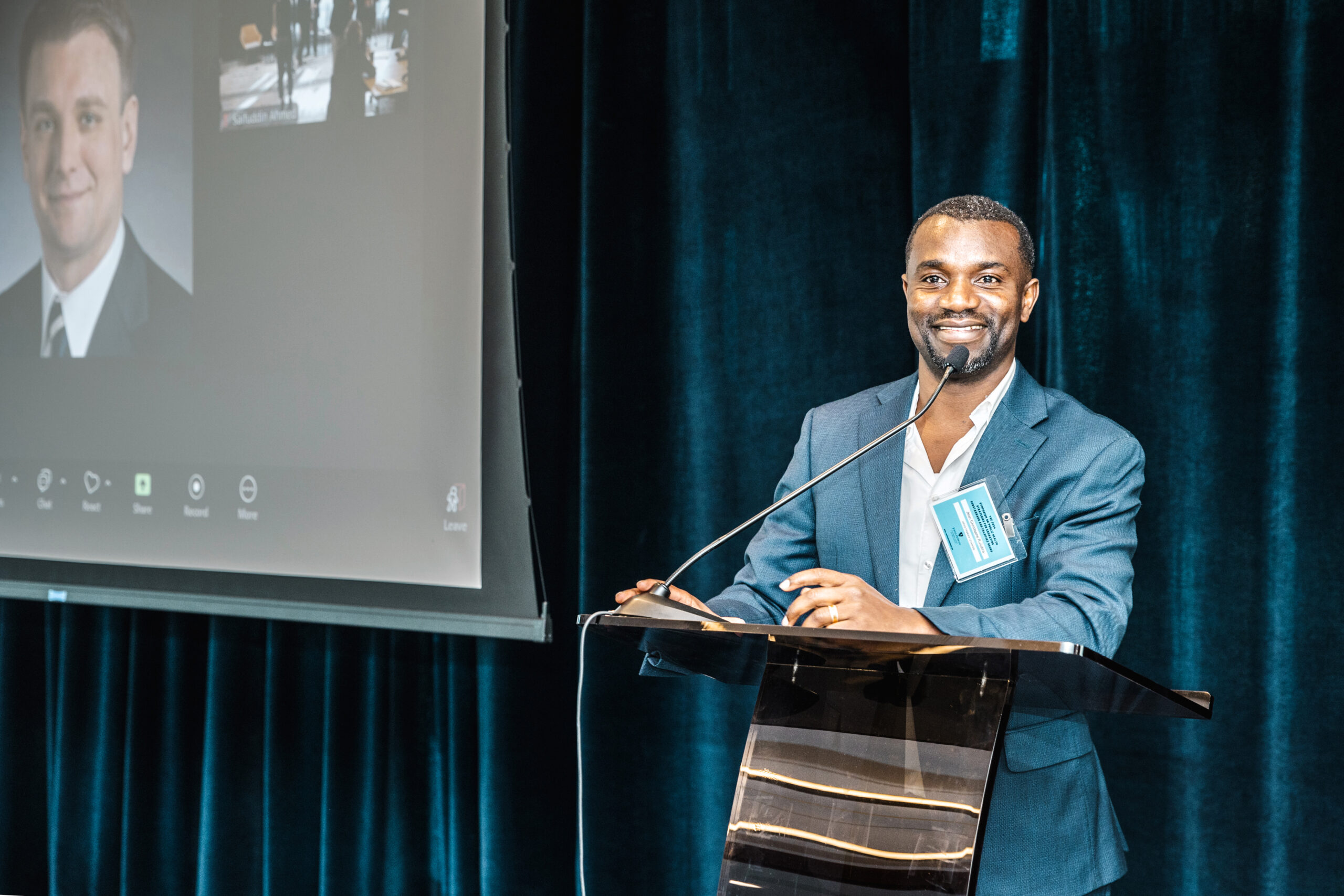Voices for quality: Jean Christophe Rusatira
Voices for Quality features perspectives from individuals on the frontlines of the substandard and falsified medicine crisis — and their fight for quality medicine for everyone, everywhere.

The burden of substandard and falsified (SF) medicines does not solely fall on those working in primary healthcare. One of the first times that Jean Christophe Rusatira witnessed the harm of SF medicines was not in a clinical setting, but while working on reproductive health policy in sub-Saharan Africa.
Dr. Rusatira co-leads and is a principal investigator at BESAFE. Originally trained as a doctor in Rwanda, he has amassed over 15 years of experience in public health research and policy advocacy, making significant contributions in areas such as family planning, reproductive health, and epidemiology. His transition to researching medicine safety and quality wasn’t accidental – years of work in reproductive health, in particular, exposed him to incidents where exposure to poor-quality contraceptives undermined the success of interventions.
We are honored to kick off the Voices for Quality series by featuring Dr. Rusatira’s unique journey to becoming a leading advocate for safe, high-quality medicines globally.
Having worked extensively in global health initiatives related to reproductive health, family planning and epidemiology, what led you to now tackle the issue of SF medicines?
My shift toward addressing SF medicines is both personal and professional. During the years of my clinical practice, whenever we suspected inefficacy of medicines we thought of the next medicine to give or amending the dose and rarely considered exploring the quality of medicine though the infrastructure to test the medicines themselves was limited. Similarly, while leading programs in reproductive health and family planning across sub-Saharan Africa, there was several cases of contraceptive failure and high rates of discontinuations which could be related to quality of products, but quality of contraceptives has rarely been a priority.
My belief is that you can have the best adherence to medicines or enabling reproductive health policy or intervention, but if women receive substandard contraceptives, the intended care outcomes will likely not be attained.
At Johns Hopkins, I had the opportunity to co-lead the BESAFE initiative, which allowed me to directly address the issue through research, implementation science, stakeholder convening, and global collaboration. Tackling SF medicines is a natural extension of my lifelong commitment to equitable and effective health systems.
What connections do you see this issue having with today’s greatest global health challenges?
SF medicines intersect with nearly every major global health challenge such as universal health coverage, antimicrobial resistance, maternal mortality, and confidence in health systems. When patients receive ineffective or falsified medicines, it undermines public health gains and fuels preventable deaths. SF medicines exacerbate health inequities, especially in low-resource settings where regulatory capacity may be limited exposing poorer communities to inferior quality medical products. As health systems globally expand access to care, ensuring that the medicines patients receive are safe and effective is a core piece of the puzzle. In this sense, drug quality is not a niche concern, it’s a prerequisite for achieving sustainable development goals in health.
Are SF medicines getting enough attention in the global health agenda?
Not nearly enough. Despite their devastating health and economic impact, SF drugs remain under-prioritized in global health discourse and funding. They’re often viewed as technical or regulatory issues rather than urgent public health threats. Through BESAFE, I’ve seen growing momentum among stakeholders, from regulators, researchers, philanthropy to pharmaceutical companies, but we still lack sustained investment and coordinated strategies. There’s also a gap in behavioral and educational interventions for healthcare providers and patients, which is why BESAFE’s approach is so critical. Elevating this issue on the global health agenda requires reframing it as a human rights and health equity issue, not just a supply chain failure.
What would you say the top challenges to medicine and drug safety are, both locally in the United States and abroad?
Globally, the main challenges include weak regulatory capacity, porous supply chains, and limited surveillance or enforcement. Many countries struggle with inadequate funding and technical infrastructure to test and monitor medicine quality. There’s also the growing complexity of global pharmaceutical markets extending to online marketplaces, which increases vulnerability to counterfeit infiltration. In the U.S., while regulatory systems are stronger, challenges persist in the form of diverted or repackaged products, online pharmacy fraud, and gaps in provider awareness.
